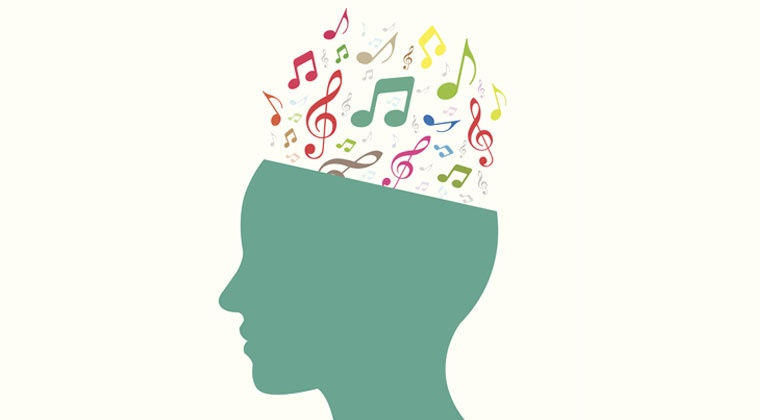The 5 Wonderful Ways Music Affects The Brain
From a relatively common sense viewpoint, there should be little doubt that music can have a huge effect on the mind. You may be surprised as to how many ways! Let’s take a few minutes and review a fairly comprehensive list of different ways of how music affects the brain.
#1 Music Can Improve Your Memory
It is interesting to note that musical training – such as learning how to play an instrument – has been shown to increase memory skills.

It’s essentially a process that is similar to learning a new language in that it exercises your mind. Most challenges similar to this involve a good amount of memorization to be successful. That exercise can lead to better language skills, increased literacy skills, and overall an enhanced ability to remember things.
#2 Music Can Reduce Stress And Anxiety
There probably have been many times in your life where things just may not be going your way. If you think back on those events, it’s hard to deny that hearing some of your favorite music can relax you and let you step back from your issues for a little bit. Music can be a key element to help to shed some of the stress that inevitably will creep into your life. There are even studies which show how music can help you sleep better, and fall asleep faster.
Music can provide a release like no other, and that can be particularly true if you’re fortunate enough to have learned how to play an instrument. For example, picking up that guitar at the end of a long day can be the perfect anecdote to any built up tension, and you can go about your day in a much calmer state.
#3 Music Training Physically Changes The Brain In Children
Young minds are a wonderful thing to develop, and music can play a big part in that role. Learning how to play an instrument (or most any other type of music training) may not only improve memory skills, but can also can have physical impacts as well.
In controlled study sessions comparing students that have had music training to a group that had not, measurable increases in neurological activity has been noted.
#4 Music And Ambient Noise May Improve Creativity
Common sense would dictate that having intense focus and being able to concentrate on a task would ensure success – even if the task is something creative, such as writing a song, creating a painting, or any other action that gets your juices flowing.

Would you be surprised to find out that the exact opposite may be true? Enhanced levels of ambient noise (around 70db) can actually make you more effective and creative. The theory is that background noise may subconsciously distract you just enough where you aren’t concentrating TOO hard (like cramming for a test).
And music most certainly be the best ‘ambient noise’ you can find. This may explain why you can be more creative and productive when you have music playing. The whole theory may be a bit complex and it may not work for everyone, but it’s intriguing to explore.
There are a lot of ambient noise examples on YouTube and you can even buy white noise ‘machines’. If you’re finding yourself hitting creative blocks or finding it hard to concentrate, it’s worth experimenting with to see if it would help you too
#5 Music Can Predict Your Personality
Simply put, the type of music that you prefer to listen to may be a big predictor of what your personality traits are. Some of these correlations can be very surprising as well. For example, who would have ever thought that a metal head may tend to be ‘gentle and creative’?
Other relationships between music types and personality may be a bit more obvious. People that enjoy classical music may be classed as more intellectual, or ‘smart’. Of course, these alignments aren’t necessarily cold hard facts that are absolutes for everyone, but they may be more accurate than you may think.


